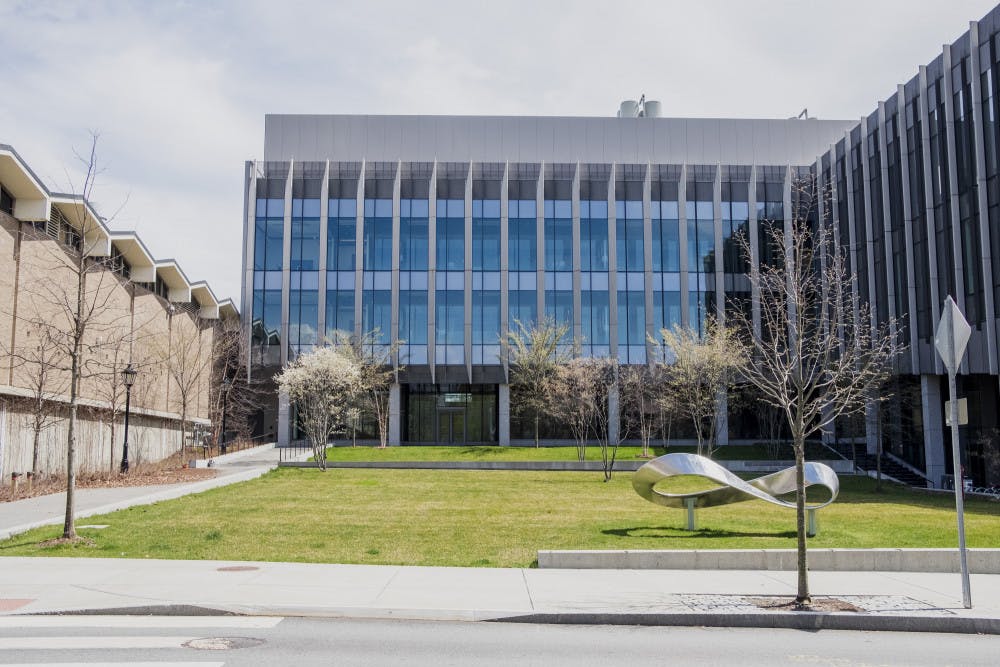As the University prepares for students’ return to campus in the fall, while also crafting contingency plans for a potential virtual semester, professors — many already balancing the transition to online classes this semester — are thinking about what September could bring.
The Herald spoke to four professors in hands-on disciplines to hear about their transitions to remote classrooms this semester and their concerns about the uncertain fall ahead.
“There are real, physical limitations”: reactions to online teaching
For Professor of Engineering Edith Mathiowitz, who co-teaches BIOL: 2156 “Special Topics in Biotechnology Writing” and BIOL: 2240 “Biomedical Engineering and Biotechnology Seminar” this semester, the limitations of remote learning make her teaching style and courses less feasible, she said.
In-person practices such as reading students’ reactions to see if they understand course material, or giving out quizzes, are no longer the same.
More than covering the course material, Mathiowitz is primarily concerned with “how to keep (my students) excited in class,” she said. “I usually like to watch my students. If someone doesn’t understand, I can tell right away.”
Professor of Engineering Eric Chason expressed particular regret for students in their final year. “I feel really bad … for the seniors,” he said, explaining that in the engineering department, students often save their upper-level courses for the last four semesters. In terms of capstones, “they’re not getting that experience of putting it all together.” Furthermore, he added that graduate students who rely on in-person lab time for their research “are having a really hard time.”
For professors in the Theater Arts and Performance Studies department, technology has already presented new obstacles — which will remain if the fall semester is also online.
TAPS Professor Connie Crawford, who is currently teaching “Introduction to Acting and Directing,” is scheduled to teach the same course next fall. The class, which Crawford describes as a “physical, collaborative class,” used to center around students rehearsing scenes with each other both inside and outside the classroom.
Now, the class has shifted to monologue work, and students have been additionally tasked with studying film and television from an acting and directing perspective.
“I added some films that speak to specific objectives of the class,” Crawford said. “It’s doable — then when we talk, we have a shared reference.”
But even monologue work is challenging to do well over Zoom, Crawford said. If the next semester is online, these concerns will likely persist.
“If internet access is spotty, that’s difficult. Sometimes students can only use Zoom in a public room. To ask them to explore a range of emotions ... or even do weird voice exercises is problematic, because we’re now balancing the concerns of the whole household,” Crawford said.
Crawford also cited differing time zones as an added difficulty in remote learning.
A student from Asia, for example, “can’t be making a whole lot of noise at night, because the grandmother sleeps in the bedroom right next to her. There are real, physical limitations.”
Another TAPS professor, Michelle Bach-Coulibaly, teaches three courses this semester and is scheduled to co-teach TAPS 0310: “Beginning Modern Dance” next fall. For her movement-focused field, Zoom is an “imperfect” tool.
“It’s not meant for what we do,” she continued. “It’s two dimensional; we’re in three and four dimensional art forms.”
“It’s horrendous for music,” she said. “Half of what my students are performing is how to play the music with their bodies — how do you really experience music through the body? Those aren’t things that can happen on Zoom: there’s lagging, skipping.”
Crawford echoed Bach-Coulibaly’s concerns from an acting perspective.
“So much of this work is physical, feeling of body language. Being able to feel somebody who’s just outside your periphery … actors need to develop a 360-degree awareness,” she said. “Online acting class can be done with great results, but we lose very important parts of understanding the process.”
For her current classes, Bach-Coulibaly has created instructional videos and has used Zoom breakout sections. But having the space to practice dance at home, she said, has and will pose a challenge for her students.
“Space is an indicator of access and privilege,” she said. “You really see this as economic inequality.”
“I don’t know if my contract will be renewed”: uncertainty about the fall
For a number of professors who teach performing arts and physical science classes, the possibility of an entirely online fall semester adds unique challenges and concerns — both academically and personally.
“I’m in negotiation with myself,” said Mathiowitz, who is scheduled to teach two classes next fall — BIOL 1090: “Polymer Science for Biomaterials” and BIOL 2110: “Drug and Gene Delivery.” “I’m trying to figure out if I’m still taking the task of teaching both,” she added.
For Mathiowitz, the classes she teaches are less lab-based, but rely on visual demonstrations. As such, finding internet experiments and “visual descriptions” could help smooth the transition online.
Chason took a sabbatical this semester, but in addition to other upper-level courses, he plans to teach ENGN 0410: ”Materials Science” next fall, which includes a lab component.
Chason said that he has not given much thought to how he will approach the transition, but mentioned potential online alternatives to the lab component. With a virtual platform, “You don’t actually do a treatment of the material, you can have a simulation of the treatment of the material,” he said.
Still, Chason said that a lack of hands-on experience in the lab will be a loss, especially in higher level courses.
“The labs aren’t all that complicated, but they show you things that happened that we talk about in class — when you heat a metal, its resistance goes up, when you heat a semiconductor, its resistance goes down.”
Both Chason and Mathiowitz said that they had few concerns about the technology itself. Even when they taught class in person, both had already been regularly uploading their classes online, including in-class visuals or the lectures themselves.
In the realm of TAPS, an online fall semester would mean performing for a digital audience instead of an in-person one. For her course in dance composition this fall, Bach-Coulibaly will shift to having students make films and “choreograph for the camera.”
But for her other classes, uncertainty still looms if the semester goes online.
“The people who don’t have access and space, I can’t imagine they will all of the sudden have space” barring herculean efforts to address inequities, she added.
Crawford has “half a semester” of an online course designed from this spring’s shift to virtual learning, and will adapt if the entire fall semester is online. The instructors in the TAPS department, she said, are “all sharing ideas with one another.” Crawford anticipates that with the time to design an online class “as opposed to having to shift” will make the transition easier.
The fall is even more uncertain for Crawford at a personal level: As an adjunct professor, the University has not informed her if she will continue teaching this fall.
“I don’t know if my contract will be renewed and if my class will be offered,” she said. “That is the gig economy. We are unsure of what’s going to happen in the fall overall.”
Crawford also expressed concern for her first-year students, who often use her introductory course as a way to enter the University community.
“Communicating with your colleagues in ways other than verbal can help develop strong bonds among the students,” she added. “I have had students tell me that my class was an integral part of joining the community at Brown.”
But for Chason, who lost his daughter to H1N1 during the 2009 pandemic, the safety of the University community outweighs any other concerns in this crisis.
“One of the things back then was they didn’t take it as seriously and they didn’t close the schools,” he said.
This time, “I was so glad that Brown and Rhode Island reacted quickly.”

Will Kubzansky was the 133rd editor-in-chief and president of the Brown Daily Herald. Previously, he served as a University News editor overseeing the admission & financial aid and staff & student labor beats. In his free time, he plays the guitar and soccer — both poorly.





